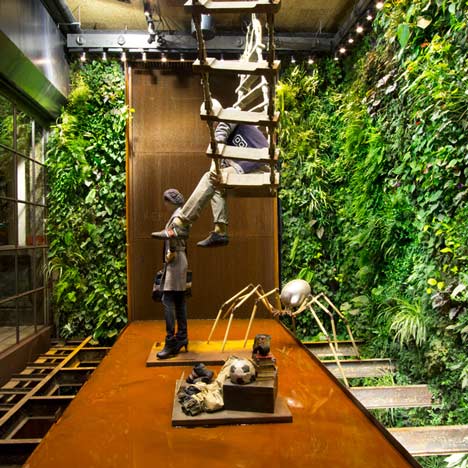
Replay by Vertical Garden Design and Studio 10
A jungle of bushy ferns and sprouting begonias fills the windows of Replay’s Barcelona boutique.
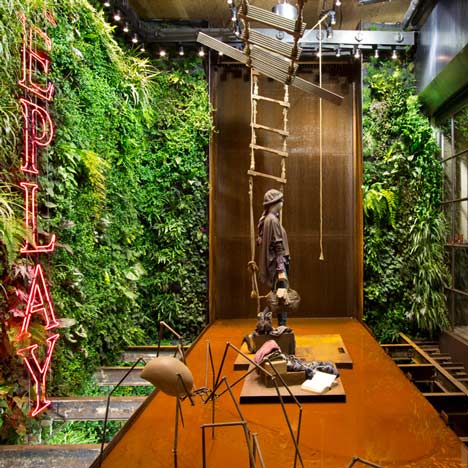
Landscape architects Vertical Garden Design created this green wall and a second facing a rear courtyard.
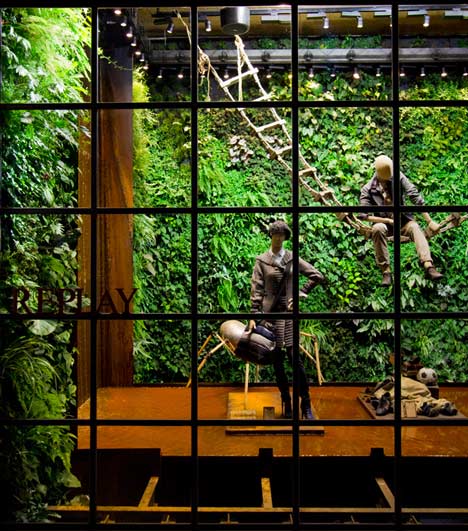
Plants on this second wall infill the spaces between weathered metal tiles that were installed by Italian architects Studio 10, who remodelled the shop.
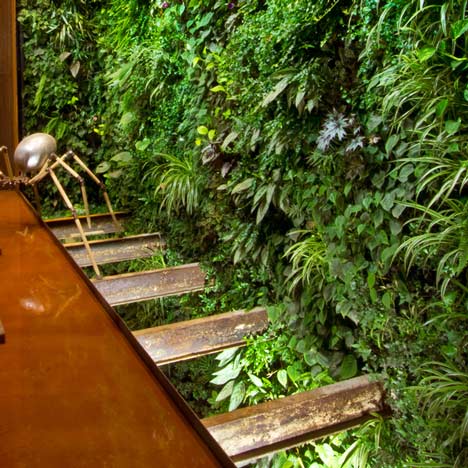
Plants that usually grow beside waterfalls were chosen for both walls.
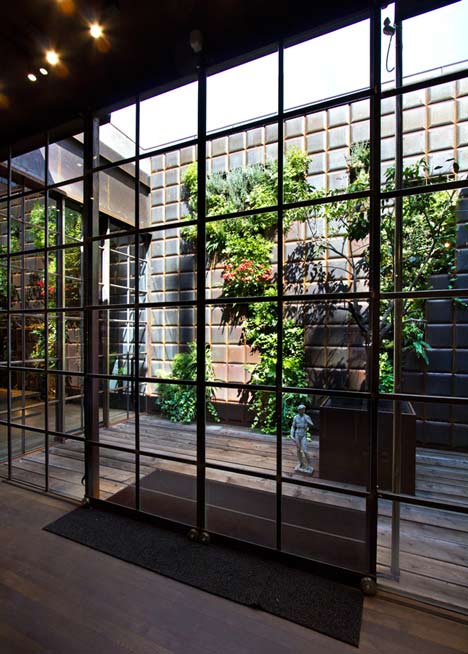
Dressed mannequins and giant model spiders also occupy the shopfront, in front of the planted wall.
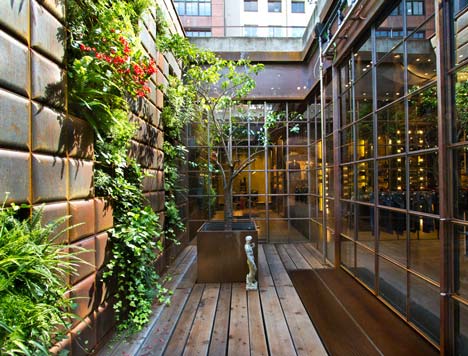
Other projects on Dezeen about green walls include a plant-covered power station and a house with a sprouting interior wall - see all the stories about green walls here.
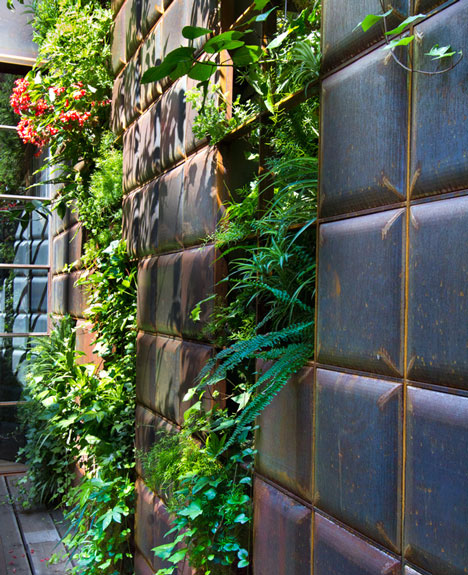
Here's a description of the walls from Vertical Garden Design:
Replay's store on Passeig de Gràcia in Barcelona now hosts a vertical garden of just above 100m2. In the storefront location, the two storey wall is set in a dramatic and playful environment with waterfalls, sculptures and contrasting materials.
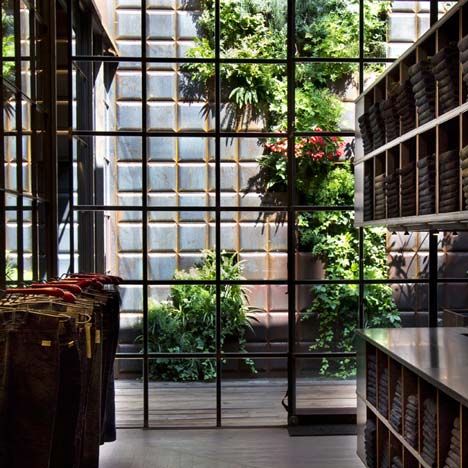
As a great place to study nature's own vertical gardens, the waterfalls were a natural starting point for the plant design. Looking closer to the environment around a waterfall, growing conditions change with linear patterns of fissures and cracks in the underlying exposed rock, or the rapidly decreasing moisture already small steps away from the immediate vicinity of the falling water. In such a manner, like the erratic and geometric cracking of an eroding rock, groups and strings of plants were laid out in an organic pattern.
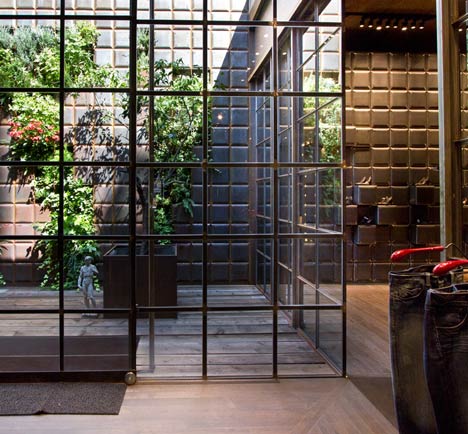
The generous surface allow for many kinds of plants. Larger groups of begonias, different ferns, small (but long) aroids like the common Philodendron scandens or Scindapsus pictus, sets the background for more dramatic effects of cascading fronds of Nephrolepis exaltata and Polypodium subauriculatum or larger aroids like Philodendron giganteum and P. erubescens.
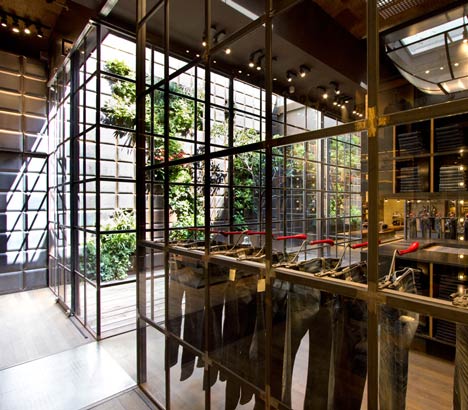
The store also have a outdoor vertical garden, located in a patio in the back of the store. Partially shadowed by surrounding buildings, the southwest facing wall has the upper area well exposed to the hot mediterranean sun, whereas the lower part is mostly in shadow.
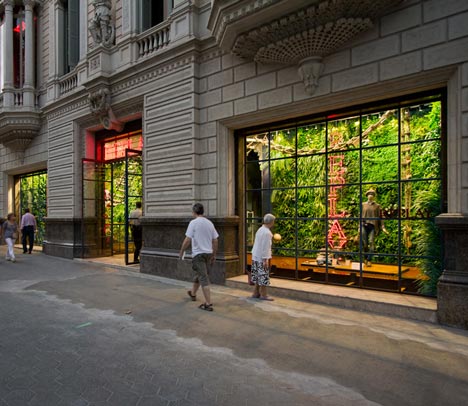
This difference in sun exposure gave way for more typical mediterranean plants in the top – such as Lavandula, Rosmarinus and Artemisia – and more shadow preferring plants like Chlorophytum and Fatsia in the lower area. In between there are a few plants that will gain some more size, the idea being to create a strong and wild growing surface, contrasting the metal grid from which it extends.